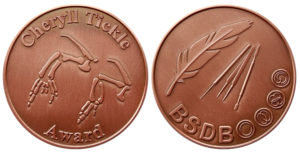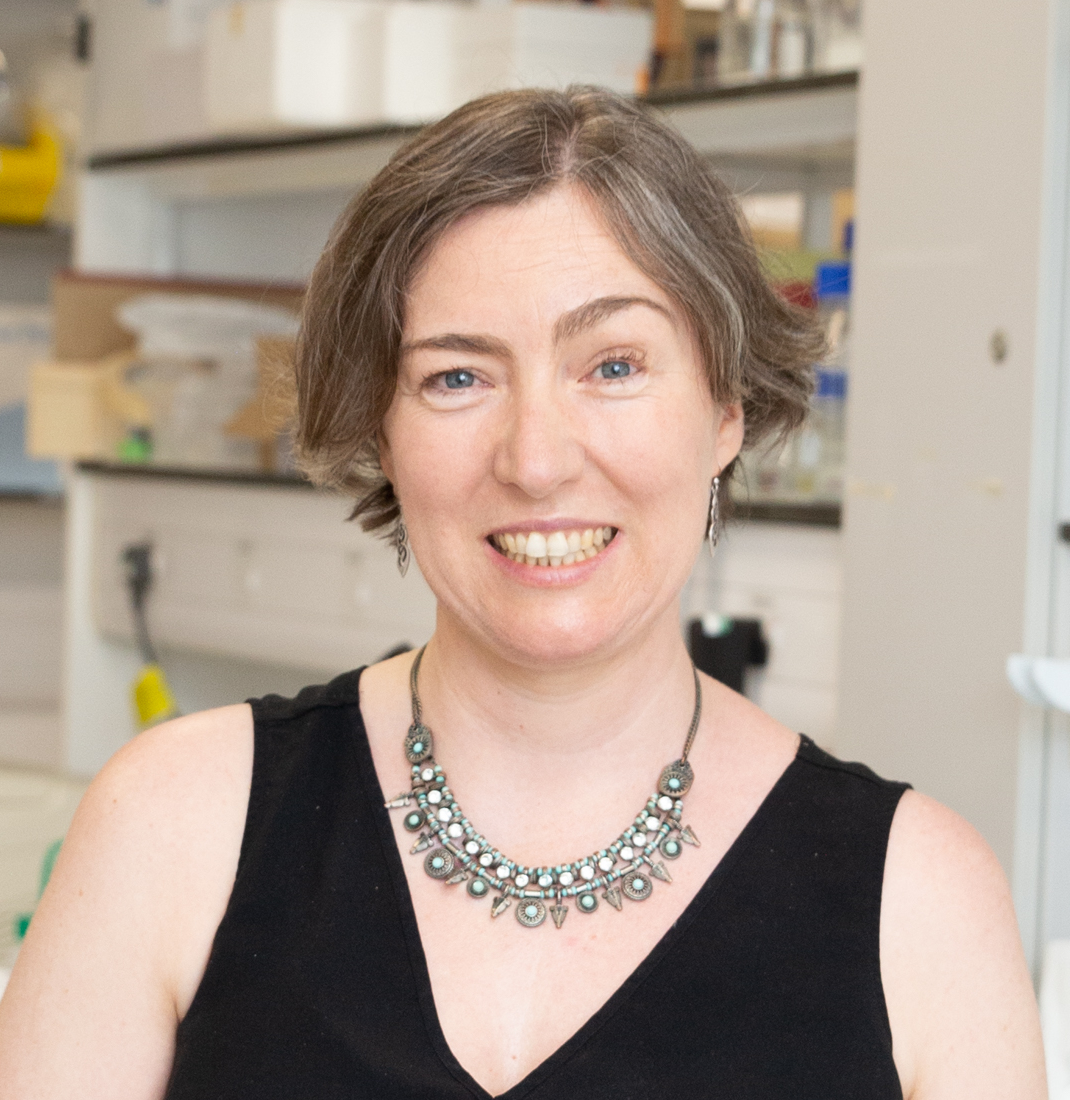In 2016, the BSDB introduced the Cheryll Tickle Medal, which is being awarded annually to a mid-career, female scientist for her outstanding achievements in the field of Developmental Biology. The BSDB is proud to announce the 2022 awardee as Dr. Emma Rawlins!

Emma is an international leader in the field of mammalian lung development and disease. She has been awarded the March of Dimes Basil O’Connor Award (2011), the EuroSyStem Innovative project award (2010) and has been the recipient of highly competitive MRC career development and MRC Senior Fellowships. She was promoted to Senior Group Leader at the Gurdon Institute in 2020, and is a member of the Department of Physiology, Development and Neuroscience at the University of Cambridge. She is also co-Director of the Wellcome funded Human Developmental Biology Initiative.

Emma obtained her PhD in developmental biology from the University of Edinburgh in 2002, working with Andrew Jarman on cell fate specification in the developing Drosophila PNS. She then moved to Duke University for her Post-Doctoral work with Brigid Hogan from 2004-2009. Her work during this time is probably best described as ‘prolific’, involving a series of highly important papers characterising cell lineages and stem cell populations during the development and homeostasis and repair of the mouse lung, summarised in this review (Rawlins, 2011).
Upon establishing her independent research group in the Gurdon Institute in 2009, Emma continued her emphasis on better understanding clonal relationships of cells during mouse lung development, uncovering fundamental principles of stem cell biology as she did so (Watson et al., 2015; Balasooriya et al., 2016; Laresgoiti et al., 2016; Balasooriya et al., 2017). She then pioneered the development of human lung organoids, becoming a world leader in the use of organoid cultures to study aspects of human development and organogenesis (Nikolić et al., 2017).
More recently, Emma ’s team has developed a powerful “Organoid Easytag” system to genetically manipulate human cells using CRISPR technology (Sun et al., 2021). Already, this technology is being exploited by multiple labs across the world and is opening up the study of human organogenesis even further, enabling the use of CRISPR screens to uncover novel molecular mechanisms (Sun et al., 2022).
’s team has developed a powerful “Organoid Easytag” system to genetically manipulate human cells using CRISPR technology (Sun et al., 2021). Already, this technology is being exploited by multiple labs across the world and is opening up the study of human organogenesis even further, enabling the use of CRISPR screens to uncover novel molecular mechanisms (Sun et al., 2022).
“She (Emma) has established a very extensive network of collaborators both within and outside the University, and she places a strong emphasis on mentoring her trainees, helping them define and achieve their individual career goals. Emma is highly collegial and interactive, and she can be counted on for high quality contributions in diverse areas”.
Clearly, Emma’s commitment to both gaining fundamental insights into developmental biology and providing a supportive environment both inside and outside her lab, makes her very deserving of the 2022 BSDB Cheryll Tickle medal!
Selected papers:
Rawlins E. L. The building blocks of mammalian lung development. (2011) Developmental Dynamics 240, 463-476.
Watson, JK, Rulands S, Wilkinson AC, Wuidart A, Ousset M, Van Keymeulen A, Göttgens B, Blanpain C, Simons BD, Rawlins EL. (2015). Clonal dynamics reveal two distinct populations of basal cells in slow turnover airway epithelium. Cell Reports 12, 90-101.
Balasooriya GI, Johnson J, Basson MA, Rawlins EL. (2016) An FGFR1-SPRY2 signalling axis limits basal cell proliferation in the steady-state airway epithelium. Developmental Cell 37, 85-97.
Laresgoiti U, Nikolić MZ, Rao C, Brady JL, Richardson RV, Batchen EJ, Chapman KE and Rawlins EL (2016) Lung epithelial tip progenitors integrate Glucocorticoid and STAT3-mediated signals to control progeny fate. Development 143, 3686-3699.
Balasooriya GI, Goschorska M, Piddini E, Rawlins EL (2017) FGFR2 is required for airway basal cell self-renewal and terminal differentiation. Development 144, 1600-1606.
Nikolić MZ, Caritg O, Jeng Q, Johnson J, Sun D, Howell, KJ, Brady JL, Laresgoiti U, Allen G, Butler R, Zilbauer M, Giangreco A, Rawlins EL (2017) Human embryonic lung epithelial tips are multipotent progenitors that can be expanded in vitro as long-term self-renewing organoids. elife. 2017 Jun 30. doi: 10.7554/eLife.26575.
Sun D, Evans LD, Perrone F, Sokleva V, Lim K, Rezakhani S, Lutolf M, Zilbauer M, Rawlins EL (2021) A functional genetic toolbox for human tissue-derived organoids. eLife DOI: 10.7554/eLife.67886
Sun D, Batlle OL, van den Ameele J, Thomas C, He P, Lim K, Tang W, Xu C, Meyer KB, Teichmann SA, Marioni J, Jackson SP, Brand AH, Rawlins EL. An organoid CRISPRi screen revealed that SOX9 primes human fetal lung tip progenitors to receive WNT and RTK signals. BioRxiv: doi.org/10.1101/2022.01.27.478034

